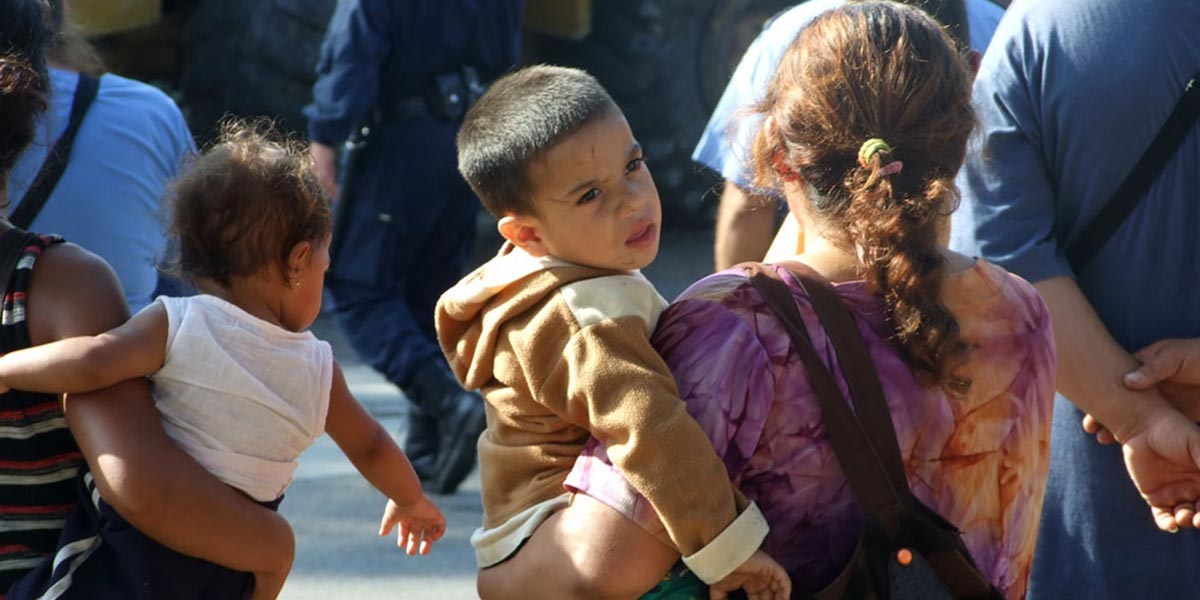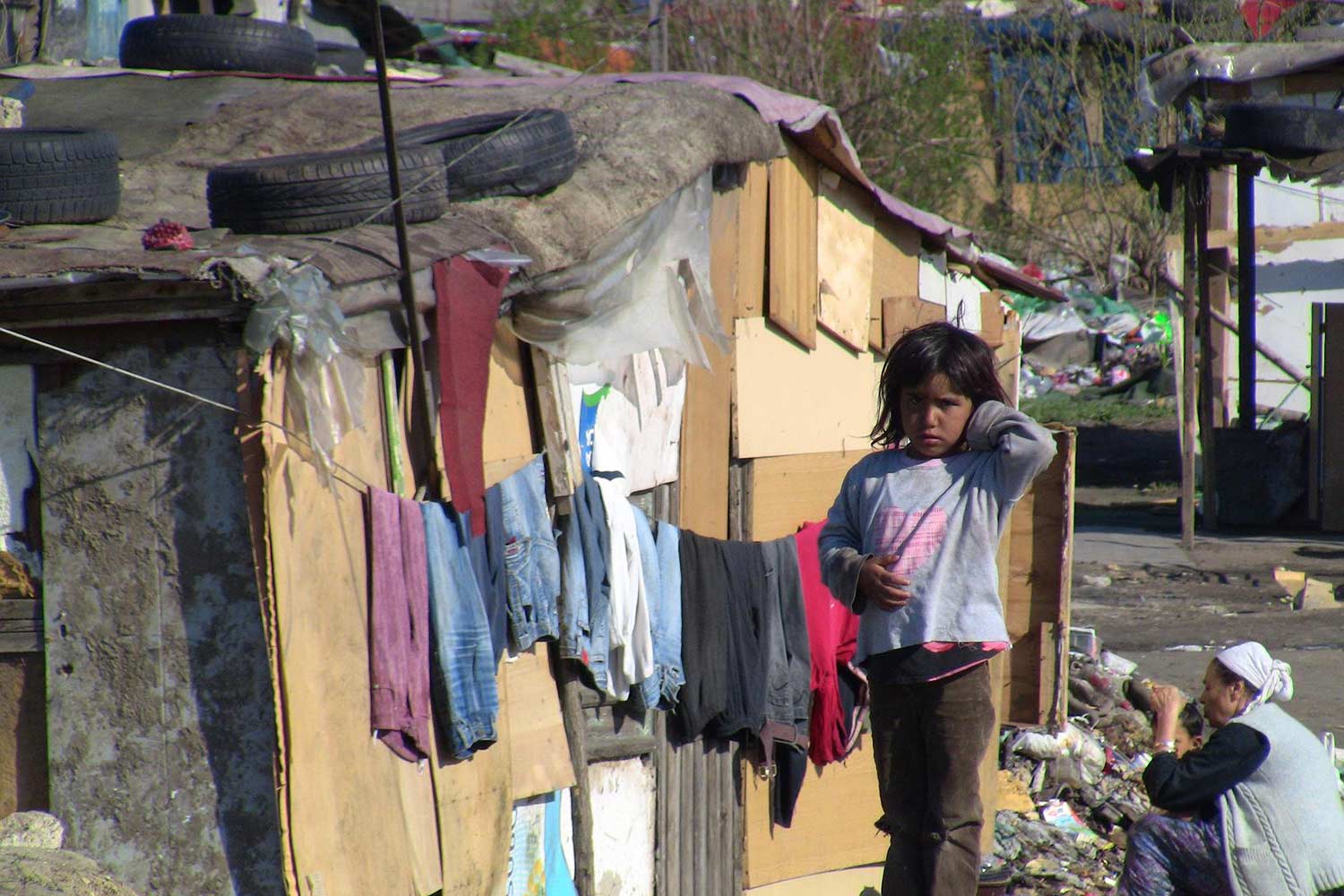Gazela Bridge rehabilitation, Belgrade, Serbia
The resettlement of about 170 predominantly Roma families that lived below the Gazela Bridge in Belgrade, Serbia is part of a wider project for the reconstruction of a bridge across the River Sava. Although the project is backed by European public money, donor requirements to follow World Bank Group resettlement standards have for a long time been ignored by Belgrade City Council.
This is an archived project. The information here may be out of date.
Learn more about our current projects and sign up for the latest updates.

Stay informed
We closely follow international public finance and bring critical updates from the ground.
Background
Summary
With a population exceeding one and half million people and an outdated urban plan that is unable to absorb increasing volumes of passengers and cargo transport, Belgrade is facing a critical traffic situation. Plans for a bypass of Belgrade and the rehabilitation of the bridge on the E70/E75 highway crossing have been revived in order to move transit traffic out of the city.
However, serious shortcomings for preventing and mitigating negative environmental and social impacts – specifically resettlement issues – have been recorded during the projects’ assessment process.
Both the European Investment Bank (EIB) and the European Bank for Reconstruction and Development (EBRD) are involved in the project and thus at least indirectly in a resettlement process that includes the discrimination of Roma families who have been threatened, evicted without proper consultation and in many cases resettled to remote places, usually without access to work, and some without sufficient hygienic installations.
Serbian authorities are in danger of repeating the mistakes from Gazela in a new project bearing an uncanny resemblance to Gazela – in an area known as Belvil. And they are again set to receive funding from the EIB and EBRD.
Resettlement went ahead with deficient planning
In August 2009 the predominantly Roma families from the Gazela informal settlement in Belgrade were resettled to temporary accommodation at four sites in Belgrade area. 61 families were sent back to their home towns in the south of Serbia.
Serbian authorities followed a Resettlement Action Plan (RAP) that does not include measures regarding long-term housing, education and employment. Visits to the four sites – Rakovica, Mladenovac, Barajevo, Cukarica – revealed that the living conditions, the access to jobs and to education urgently need to be addressed if the IFIs are to disburse financing and the projects are to go forward.

Stories of displacement
See updates and multimedia content of the displaced families on Bankwatch’s video blog Out of Sight.
Resettlement is not the end of the story
Through dialogue with affected people, city authorities and bank representatives Bankwatch is promoting participatory and transparent consultations on the projects, particularly where resettlement is at stake. These must ensure that resettlement or compensation processes are inclusive and ensure benefits for all project-affected people.
At the least, adherence to the World Bank’s Operational Directive on Involuntary Resettlement, which has been accepted by EIB and EBRD as an operational standard, would mean a step forward in this regard.
In general, much better coordination still needs to be established between the IFIs involved in the projects, the Belgrade city authorities, interested NGOs and the affected population. Sound solutions must be found for resettling and compensating the population.
This solution needs to take into account the real needs, abilities, knowledge and future sustainable life of the affected populations in both of the envisaged resettlements.
Latest news
Response to statements regarding CEKOR in the Serbian media
Press release | 9 June, 2016CEKOR, as a non-governmental watchdog organisation, has since 1999 strived to promote sustainable development in Serbia and has a strong track record in supporting local communities harmed by development projects to advocate for their rights.
Read moreEuropean Development Bank: Backward Step on Rights – Draft Policy Would Weaken Protection
Press release | 5 March, 2014(London) – The European Bank for Reconstruction and Development’s (EBRD) new draft Environment and Social Policy would fail to weed out abusive development projects, seven human rights and bank watchdog organizations said today in a joint statement. The bank’s consultation on the draft policy closes on March 5, 2014. It then has an opportunity to revise the policy before sending it to the bank’s board for approval in the coming months.
Read moreDon’t let facts get in the way of a good EBRD Roma headline
Blog entry | 26 July, 2012The EBRD’s claims it has helped turn Serbia into a “role model for social inclusion of Roma” ring hollow in light of the plethora of abuses of Romas’ rights in other cases in Serbia.
Read moreRelated publications
Letter to the EBRD asking for investigation into alleged irregularities regarding the Gazela resettlements
Advocacy letter | 3 February, 2010 | Download PDFReport from the Gazela resettlement fact-finding mission in October 2009
Briefing | 19 October, 2009 | Download PDFOn 31 August 2009 the inhabitants of the Gazela informal settlement in Belgrade were resettled to temporary accommodation at four sites outside of Belgrade. After a visit conducted by partner group CEKOR in September which found a number of important issues needing to be addressed, Bankwatch carried out a follow-up fact-finding mission on 6-8 October 2009.
Complaint against the EIB regarding maladministration in the Gazela resettlement process
Advocacy letter | 29 September, 2009 | Download PDFThe complaint concerns the European Investment Banks failure to adhere to its own transparency and social standards in the Gazela Bridge Rehabilitation project in the Republic of Serbia. It has been sent simultaneously to the European Ombudsman.
